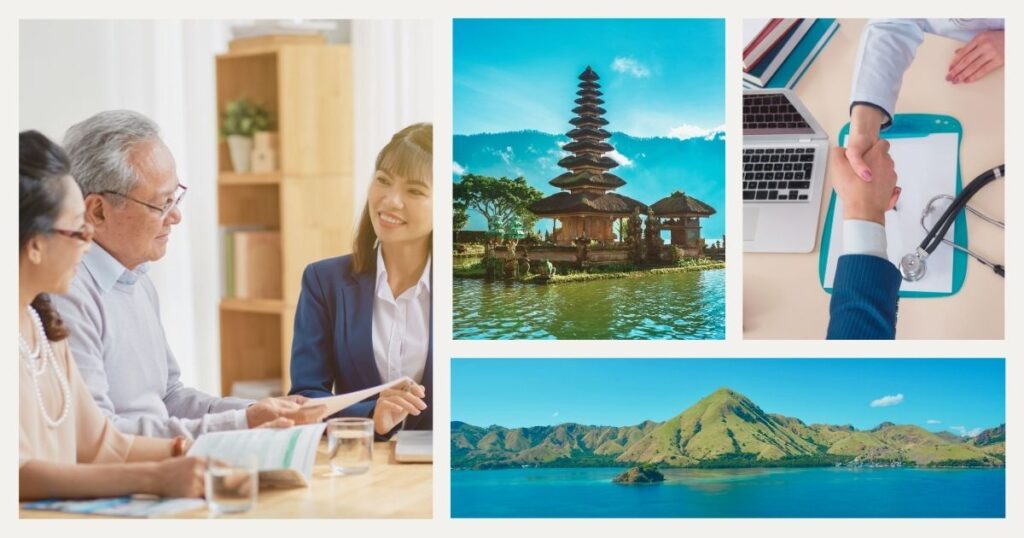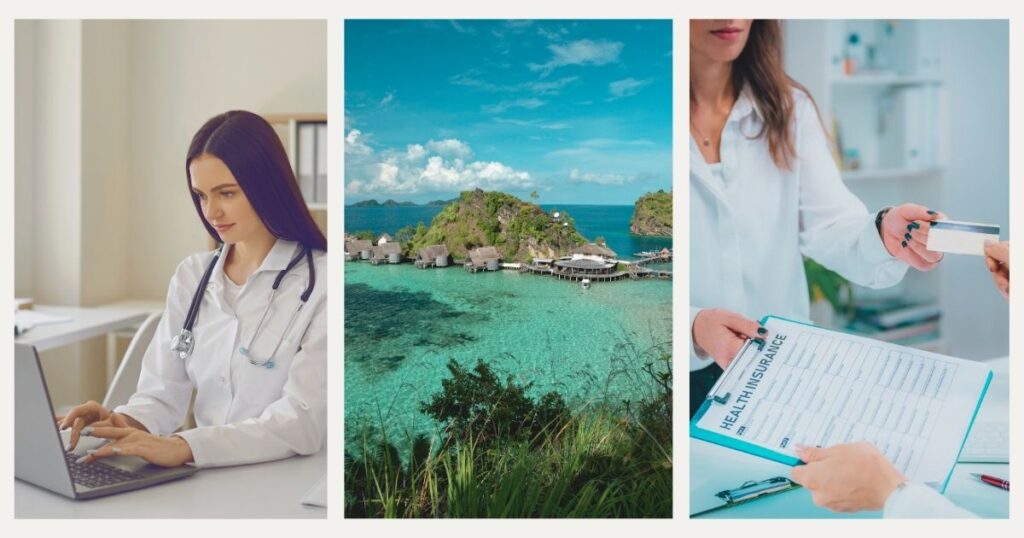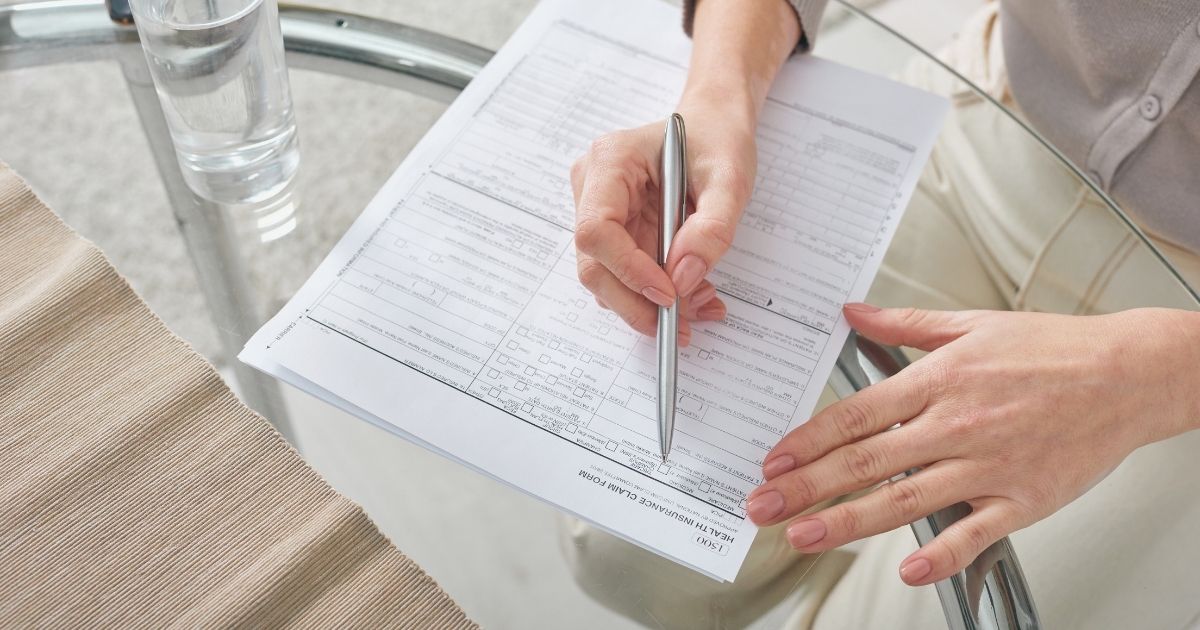Navigating healthcare in Indonesia requires understanding a complex system that varies dramatically between urban centers and rural areas, making comprehensive health insurance in Indonesia essential for digital nomads, expats, and travelers. From world-class private hospitals in Jakarta to basic clinics in remote villages, the quality and accessibility of medical care depend heavily on location and your insurance coverage.
Indonesia’s healthcare landscape presents unique challenges and opportunities for international residents. While major cities like Jakarta, Surabaya, and Bali offer excellent private medical facilities that rival international standards, the public healthcare system faces capacity constraints and language barriers that complicate treatment for foreigners.
Understanding your health insurance options in Indonesia ensures you receive quality medical care without facing financial hardship during emergencies or routine healthcare needs. This comprehensive guide explores coverage types, provider options, costs, and practical considerations for maintaining optimal health protection.
Understanding Indonesia’s healthcare system

Indonesia operates a dual healthcare system comprising public and private sectors, each serving different population segments with varying quality standards for international residents.
💡 Did you know? Indonesia launched its universal healthcare program (BPJS Kesehatan) in 2014, providing basic medical coverage to over 220 million citizens. However, foreign residents typically cannot access this system, making private health insurance in Indonesia absolutely essential for quality medical care.
Public vs private healthcare
The public healthcare system primarily serves Indonesian citizens through government-subsidized facilities that often experience overcrowding, limited resources, and extended waiting times. Foreign residents generally cannot access these services except in emergencies, which is why securing health insurance in Indonesia becomes crucial for expatriates and digital nomads.
Public hospitals may lack English-speaking staff, modern equipment, and international treatment protocols that expatriates expect. Quality varies significantly between facilities, with teaching hospitals in major cities offering better care than rural health centers.
Private hospitals in major Indonesian cities provide excellent medical care with English-speaking doctors, modern equipment, and international accreditation standards. Facilities like Siloam Hospitals, Mayapada Healthcare, and RS Pondok Indah offer comprehensive services comparable to Western standards, though accessing these requires proper health insurance in Indonesia for most foreign residents.
🌟 Pro tip: maintain reliable communication with healthcare providers using advanced connectivity solutions that ensure seamless access to telemedicine consultations, appointment scheduling, and emergency services throughout Indonesia’s diverse regions.
Types of coverage available
Several distinct insurance categories serve different needs and budgets, from basic emergency coverage to comprehensive international plans. The landscape of health insurance in Indonesia offers multiple pathways for foreign residents to secure appropriate medical protection.
International health insurance
International providers like Cigna Global, Allianz Care, and IMG offer comprehensive coverage that includes worldwide medical treatment, emergency evacuation, and access to private facilities. These plans typically cost $1,500-5,000 annually and represent the premium tier of health insurance in Indonesia for expatriates seeking global flexibility.
Global coverage allows treatment in neighboring countries like Singapore or Thailand for specialized procedures unavailable in Indonesia. Many plans include annual health check-ups, dental care, and mental health services.
Local Indonesian insurance
Indonesian insurance companies like Prudential Indonesia, AXA Mandiri, and Sequis offer policies designed specifically for residents and long-term visitors. These plans typically cost 30-50% less than international alternatives while providing excellent local coverage, making them an attractive option for those prioritizing health insurance in Indonesia over global coverage.
Local plans excel in understanding Indonesian healthcare systems, maintaining relationships with top private hospitals, and offering seamless claim processes through established provider networks.
Travel and short-term insurance
Visitors staying less than one year often choose travel insurance from providers like World Nomads, SafetyWing, or Allianz Travel. These policies cost $500-1,500 annually and focus on emergency medical coverage, serving as basic health insurance in Indonesia for temporary residents and tourists.
Selecting the right coverage

Choosing optimal health insurance in Indonesia requires careful assessment of your medical needs, financial situation, travel patterns, and intended length of stay.
Key assessment factors
Pre-existing medical conditions significantly impact plan selection and costs, with some insurers excluding coverage while others offer limited benefits with waiting periods. This consideration becomes particularly important when evaluating options for health insurance in Indonesia for individuals with chronic conditions.
Age and health status affect both eligibility and pricing, with older applicants facing higher premiums and more restrictive coverage options. Lifestyle factors including adventure activities, remote work locations, and travel frequency influence coverage needs.
Geographic and budget planning
Urban residents in Jakarta, Surabaya, or Bali can access excellent private healthcare with most insurance plans, while rural areas may require policies with evacuation coverage. These geographic considerations significantly influence the type of health insurance in Indonesia that best serves your specific location and mobility needs.
Premium costs vary dramatically based on coverage scope, with basic plans starting around $500 annually while comprehensive international coverage can exceed $5,000 for older applicants.
Leading insurance providers
Understanding provider strengths helps identify optimal coverage based on your specific needs and budget constraints. The market for health insurance in Indonesia includes both international and local providers, each offering distinct advantages.
International providers
Cigna Global provides comprehensive worldwide coverage with excellent Indonesian provider networks, multilingual customer service, and flexible plan options. Allianz Care offers extensive Indonesian coverage through partnerships with top private hospitals and emergency evacuation services.
IMG Global specializes in expatriate coverage with competitive pricing, good Indonesian hospital networks, and flexible policy terms suitable for varying lengths of stay.
Local Indonesian companies
Prudential Indonesia combines international expertise with local market knowledge, offering plans specifically designed for expatriates with comprehensive local provider networks. Their policies represent some of the most cost-effective health insurance in Indonesia for those planning extended stays.
AXA Mandiri provides excellent value through extensive hospital partnerships and streamlined claim processes. Sequis focuses on premium healthcare coverage with access to Indonesia’s best private facilities.
Digital nomad options
SafetyWing offers flexible coverage designed for location-independent professionals, with affordable pricing and automatic renewals. World Nomads provides adventure travel insurance with extended coverage options and equipment protection.
Costs and claims process

Understanding insurance costs and claim procedures helps plan accurately for healthcare expenses while ensuring smooth access to medical care. The financial aspects of health insurance in Indonesia vary significantly based on provider type, coverage scope, and individual circumstances.
Cost factors
Age represents the primary cost determinant, with premiums increasing significantly for applicants over 40. Coverage scope dramatically affects costs, with basic emergency plans starting around $500 annually while comprehensive international plans can exceed $4,000.
Deductibles and co-payments add substantial out-of-pocket expenses during medical treatment. Annual payment discounts typically provide 5-15% savings compared to monthly premium payments.
Claims navigation
Direct billing arrangements with major private hospitals eliminate upfront payments for covered services, though patients should verify coverage and obtain pre-authorization for non-emergency treatments. Understanding these processes becomes crucial for maximizing the benefits of your health insurance in Indonesia.
24/7 assistance hotlines provide crucial support during medical emergencies, helping locate appropriate facilities and coordinate treatments.
Special considerations for digital nomads
Location-independent professionals face unique healthcare challenges requiring specialized insurance features. The evolving needs of digital nomads have influenced how health insurance providers structure their offerings.
Flexible coverage needs
Multiple country coverage accommodates frequent travel throughout Southeast Asia, ensuring continuous protection during border crossings. Virtual consultation coverage allows remote medical advice, particularly valuable for minor illnesses while traveling.
Mental health support through telemedicine addresses isolation challenges common among location-independent professionals.
Visa requirements
Digital nomad visas increasingly require proof of comprehensive medical coverage, with specific minimum coverage amounts and approved provider lists. These requirements directly impact which health insurance in Indonesia qualifies for visa applications.
Indonesian authorities may specify minimum coverage amounts, typically $50,000-100,000 for medical expenses, depending on visa type and intended length of stay.
Final thoughts
Securing appropriate medical coverage represents a crucial investment in your safety, health, and financial security during your Indonesian experience. Whether you’re a digital nomad planning an extended stay in Bali, an expatriate relocating to Jakarta, or a traveler exploring Indonesia’s diverse regions, comprehensive health coverage ensures access to quality medical care without financial hardship.
Success lies in carefully evaluating your specific needs, comparing provider options, and selecting coverage that balances comprehensive protection with affordability. The Indonesian healthcare system offers excellent private care for those with proper insurance, making the investment in quality health insurance in Indonesia essential for optimal health outcomes and peace of mind.
Ready to secure your health and peace of mind in Indonesia? Understanding insurance options is just one aspect of preparing for life as an international resident. For comprehensive guidance on legal requirements for working in Indonesia, explore our detailed guide to Indonesia’s digital nomad visa to understand visa requirements, application processes, and long-term opportunities for remote workers.
Let Nomada help you navigate every aspect of your global lifestyle with confidence 🌴
Frequently asked questions about health insurance in Indonesia
While medical insurance isn’t legally required for tourists, it’s highly recommended due to limited access to public healthcare for foreigners and high costs of private medical treatment. Many visa types now require proof of insurance, making health insurance in Indonesia increasingly important for legal compliance and financial protection.
Local Indonesian insurance typically costs 30-50% less than international plans but focuses primarily on domestic healthcare facilities. International insurance offers worldwide coverage, medical evacuation, and access to global provider networks, making it ideal for frequent travelers or those wanting treatment options outside Indonesia.
Medical insurance costs vary significantly based on age, coverage scope, and provider type. Basic travel insurance starts around $500 annually, local Indonesian plans range from $800-2,500, while comprehensive international coverage can cost $1,500-5,000+ per year depending on benefits and deductibles selected.
Yes, many local Indonesian insurance companies offer policies for expatriates and long-term visitors, often providing better value than international alternatives for those planning extended stays. However, coverage typically focuses on Indonesian facilities and may have limited benefits for treatment outside the country.
Key factors include comprehensive coverage for private hospitals, emergency evacuation benefits, English-speaking customer support, direct billing arrangements with major facilities, and appropriate geographic coverage based on your travel patterns. Consider your specific medical needs, budget constraints, and intended length of stay when comparing options.
Coverage for pre-existing conditions varies significantly between providers and policy types. Some insurers exclude pre-existing conditions entirely, while others offer limited coverage after waiting periods. International insurance providers typically offer more flexible options for managing ongoing health conditions compared to local Indonesian insurers.




